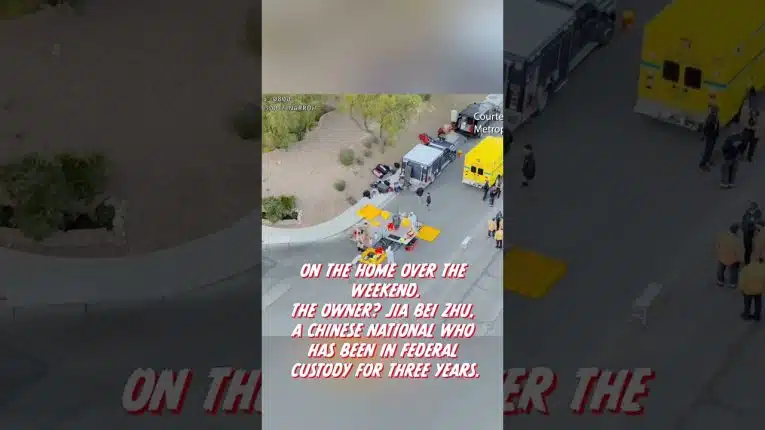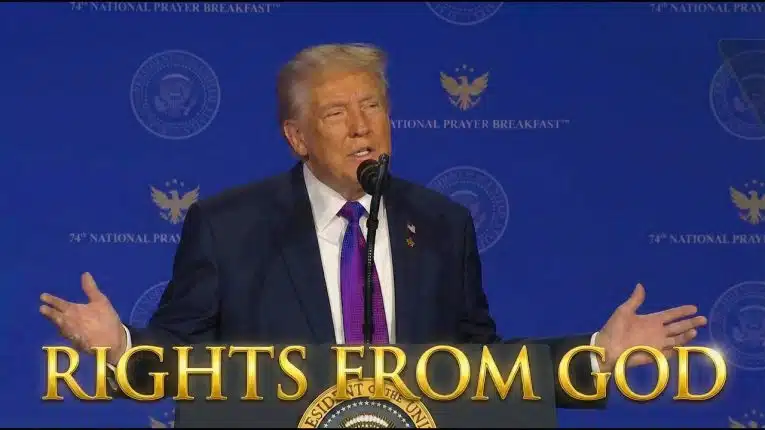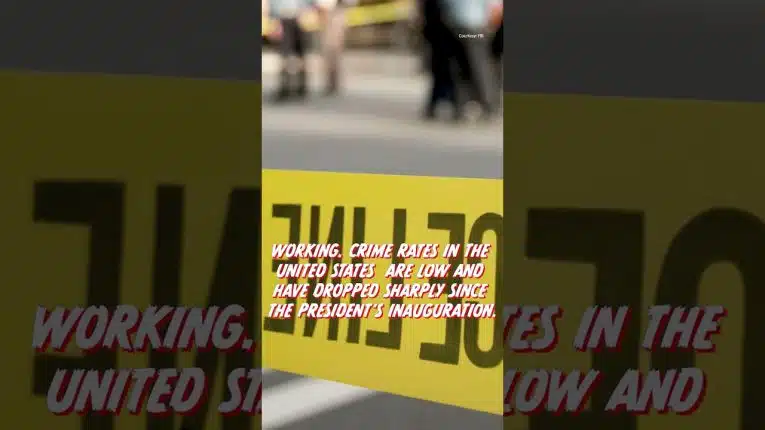
Encounters on the southwest border of the U.S. with Mexico dropped to a record low of 11,017, according to the latest data by U.S Customs and Border Protection, the lowest ever on record in data dating all the way back to 2000. This was the second month in a row at these record lows since President Trump began his second term, with encounters on the border in February coming in at 11,709.
Compared to a year ago, in March 2024, there were 189,359 encounters on the southwest border, and so being down to 11,017, that is a 94 percent decrease, proving to the American people and the entire world that border security is about the political will of the President more than anything else, with Trump declaring a national border emergency on Jan. 20 under the National Emergencies Act, deploying the military to the border, resuming construction of the southern border wall, declaring gangs and drug cartels to be terrorist organizations and expediting their removal under the Alien Enemy Act and by the Attorney General.
The President also declared that emergency military deployment requires the use of the military under 10 U.S. Code Sec. 12302, “Ready Reserve,” which allows up to 1 million active duty military to be used.
And like in 2019, Trump is using the emergency to finish construction of the southern border wall under 50 U.S. Code Sec. 1631 and 10 U.S. Code. Sec. 2808, which allows for military construction authorities to be invoked in the event of a national emergency.
In addition, Trump has used economic levies on Mexico, a 25 percent tariff, under the national emergency and under 19 U.S. Code Sec. 2483 — an ultimatum leveled before he even took office — that resulted in Mexico putting 10,000 of its own troops on the U.S.-Mexican border.
President Trump even declared Tren de Aragua, MS-13 and other criminal gangs and drug cartels as terrorist organizations on Jan. 20 by executive order in accordance with 8 U.S. Code Sec. 1189, “Designation of foreign terrorist organizations.”
And on March 15, Trump issued a proclamation invoking the 1798 Alien Enemy Act that the international criminal organization Tren de Aragua, supported by Venezuela, is a “hybrid criminal state that is perpetrating an invasion of and predatory incursion into the United States, and which poses a substantial danger to the United States.” Upon the proclamation, about 250 such enemy aliens were deported to El Salvador, a U.S. ally.
The law, 50 U.S. Code Sec. 21, provides that upon presidential proclamation that “any invasion or predatory incursion is perpetrated, attempted, or threatened against the territory of the United States by any foreign nation or government” that “The President is authorized… to provide for the removal of those who, not being permitted to reside within the United States, refuse or neglect to depart therefrom…”
Now, some of those removals are being challenged, including from Kilmar Abrego Garcia, an El Salvadoran illegal alien who was a MS-13 member — stated twice in deportation orders in 2019 — who was removed to El Salvador after also being named an enemy alien. However, his asylum claim was not filed in a timely manner and so “eligibility appears limited to withholding of removal” to El Salvador, meaning Garcia could still be deported to another country.
However, speaking to reporters on April 14, White House Deputy Chief of Staff Stephen Miller noted that the withholding of removal can in turn be overruled by the Attorney General: “the Attorney General has authority to overrule the immigration court, and that’s actually by statute.”
Miller is right. Specifically, under 8 CFR Sec. 103.10(b): “Except as Board decisions may be modified or overruled by the Board or the Attorney General, decisions of the Board, and decisions of the Attorney General, shall be binding on all officers and employees of the Department of Homeland Security or immigration judges in the administration of the immigration laws of the United States.”
The regulation was established in part under 8 U.S. Code Sec. 1103(a) that “determination and ruling by the Attorney General with respect to all questions of law shall be controlling…” as it relates to “the administration and enforcement of this chapter and all other laws relating to the immigration and naturalization of aliens…”
And under 8 U.S. Code Sec. 1103(g)(2): “The Attorney General shall establish such regulations, prescribe such forms of bond, reports, entries, and other papers, issue such instructions, review such administrative determinations in immigration proceedings, delegate such authority, and perform such other acts as the Attorney General determines to be necessary for carrying out this section.”
Miller went on to note that expedited removals of dangerous illegal aliens — and mass deportation more broadly — were necessary or else it will never happen, saying, “There’s 15 million illegal aliens that violated the country. If every one of them got the trial that you’re asking for, it would take us centuries to remove them, centuries. We’re talking about this in 300, 400 years. Their great, great, great grandchildren would be the ones representing them in court, that’s how long it would take. Illegal aliens who come to our country have to be removed and they have to be removed quickly, and that is an essential component of having something that we like to call a country.”
And so, it appears the removals are being expedited, once again, under laws that Congress has passed, putting the lie to former President Biden’s claim that action was necessary by Congress in order to do anything.
As it turns out, it takes a president. There were at least six things former President Joe Biden under laws Congress already enacted that he was unwilling to do: declare an emergency, put the military on the border, build the wall, get tough with Mexico using tariffs, declare the gangs to be terrorist organizations and expedite removals under the Alien Enemy Act and by the Attorney General. It doesn’t take an act of Congress, it takes the act of one man, the President, in whom the executive power is vested under Article II to enforce the laws of the land. It’s about time.
Robert Romano is the Executive Director of Americans for Limited Government Foundation.






